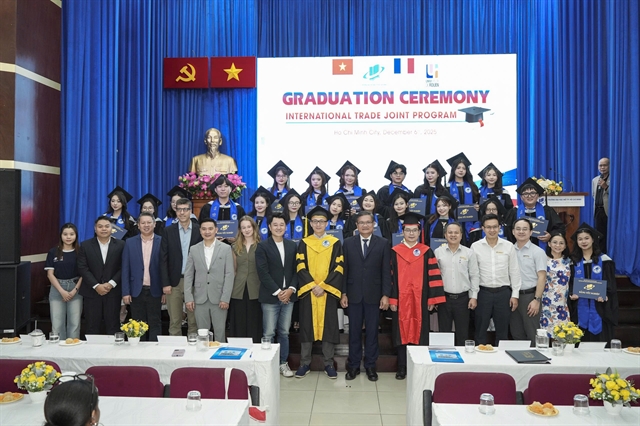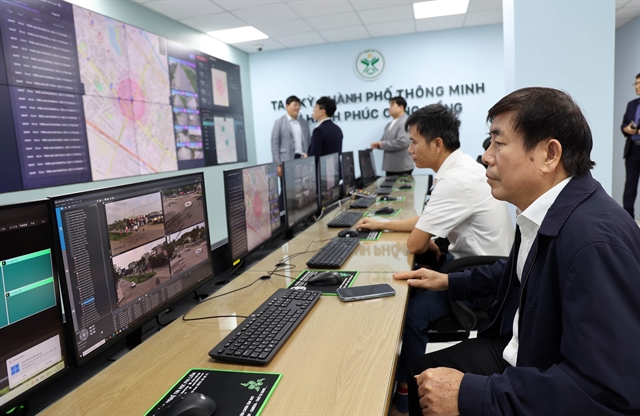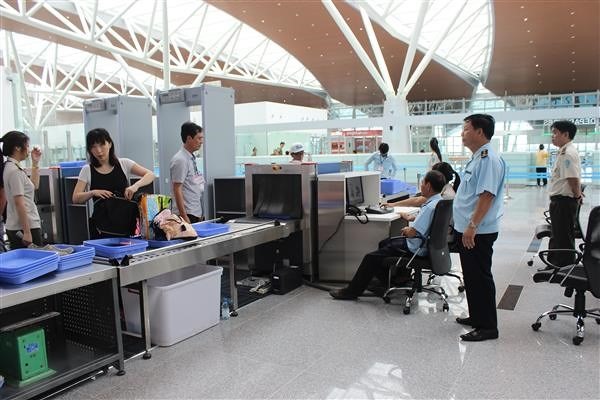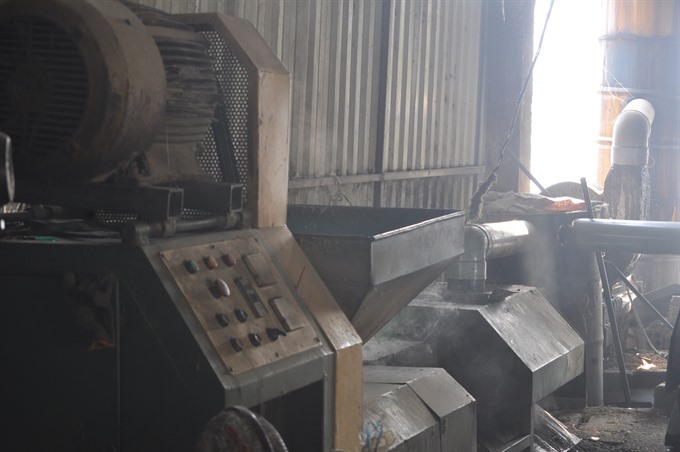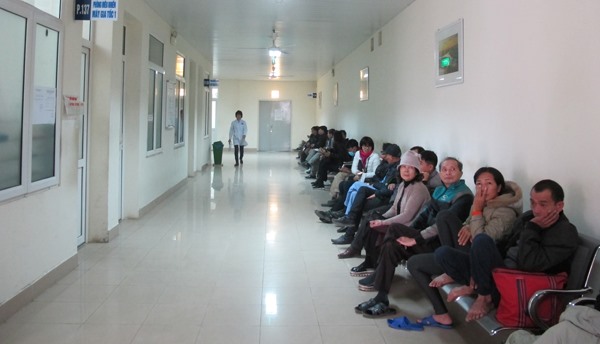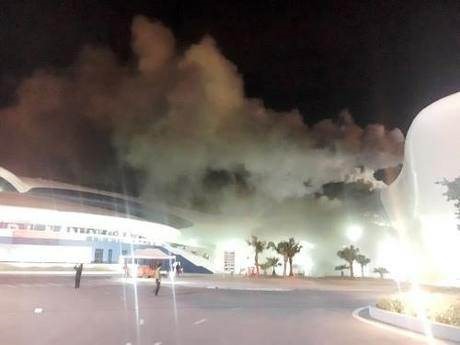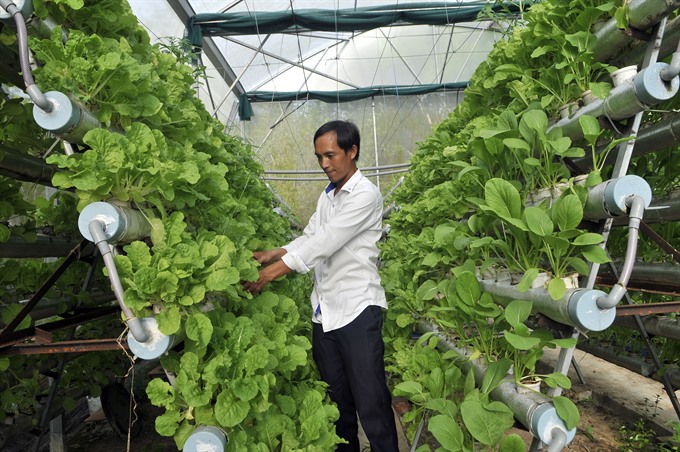
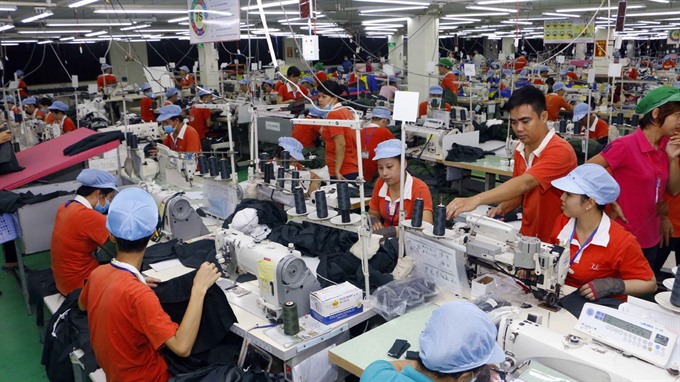 |
| Assembly lines at garment maker Kwong Lung – Meko Company in Cần Thơ City. Photo for illustration purpose. — VNA/VNS Photo Thanh Liêm |
HCM CITY — Several enterprises in the south, mostly in HCM City and the provinces of Đồng Nai and Bình Dương, are accelerating worker recruitment, preparing to up production after the Tết (Lunar New Year) holiday that falls in mid-February 2018.
They are announcing their hirings in many ways, posting recruitment information on banners and social networks, the Tuổi trẻ (Youth) newspaper reports.
The Liên Phương Textile Company in District 9, HCM City, is offering jobs with salaries of VNĐ5.5-12 million (US$242 – 528) a month, welfare policies and healthcare insurance.
At the Linh Trung Export Processing Zone and Tân Bình Industrial Zone in HCM City, a lot of companies are calling for people to apply for different jobs.
Bùi Thanh Ngọc, deputy director of Job and Employment Services Centre under HCM City Export Processing Zones Authority, said that the centre is currently looking to hire 1,000 women for electronics assembling, 700 workers in mechanical components manufacturing and 1,500 garment workers.
Difficult task
Pousung Vina Company in Bàu Xéo Industrial Zone, Trảng Bom District, Đồng Nai Province is among the companies keenly looking to get new employees at the end of the year.
Lê Nhật Trường, head of the company’s labour union, said that it was seeking 1,000 workers to complete orders and prepare for new assembly lines.
“We are offering thousands of jobs, but are only able to hire four to five workers each day. In February or March, we could select a hundred a day,” he said.
Enterprises in Bình Dương Province are also struggling to find workers.
At the provincial Employment Service Centre, more than 600 companies have advertised nearly 16,000 vacancies, but just 300 candidates have registered for interviews.
According to Foster VN Electronics Ltd Company in VSIP 2 in Thủ Dầu Một City, despite offering attractive welfare packages, it has not been able to get the 3,000 workers it is looking for in the year-end recruitment campaign.
Vũ Văn Vượng, head of the company’s human resource department, said that this year, they have only been able to recruit some 30 workers a day, compared to around 100 in previous years.
Labour demand in the Mekong Delta provinces and Đà Nẵng City has also risen sharply.
A report by Long An Province’s Department of Labour, Invalids and Social Affairs (DoLISA) says local enterprises are facing hurdles in finding workes. They needed more than 75,000 workers in 2017, but only 30,000 have been hired so far.
Huỳnh Viết Tư, director of the Employment Service Centre under the Đà Nẵng Export Processing Zone Authority, said that the city was dealing with a serious labour shortage, mostly in textile and mechanical sectors.
According to Bình Dương Province’s labour department, the problem is caused by migrant workers leaving because they prefer to work at emerging industrial zones in the Mekong Delta and the central region.
Huỳnh Ngọc Long, director of the Đồng Nai Province Employment Service Centre, said high labour turnover, bankruptcies and early retirement policies might have exacerbated the problem.
Better packages
Ngọc said enterprises were paying more attention to improve welfare policies for workers.
“Besides the salary and working environment, welfare is a a primary concern for employees. By adopting favourable policies, companies are strengthening their employee retention,” he said.
Hà Thị Đào, human resource manager of a company in the Linh Trung Export Processing Zone, said that labour turnover in textile, leather or footwear industries was high because of wide salary ranges.
“Enterprises who receive a lot of orders can offer higher salaries. But workers may have unstable income. At the end of the year or after the Tết holiday is the time workers seek for better jobs,” she said.
To address the problem, the Bình Dương labour department has recommended that companies offer better remuneration to all employees. — VNS

